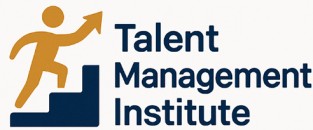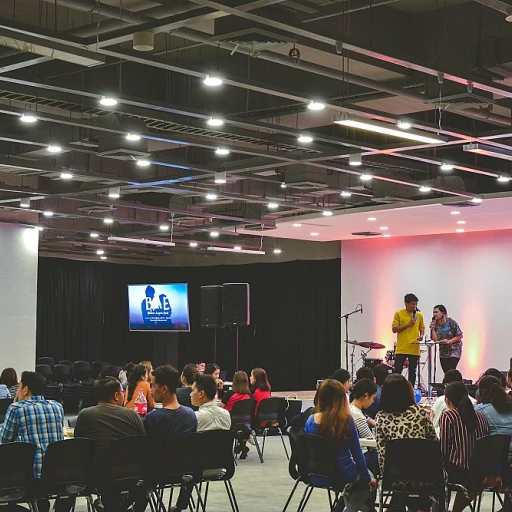Understanding the Role of Retail Staffing Agencies
The Backbone of Retail Staffing
In the retail sector, having the right team to support your business operations is crucial. Retail staffing agencies play a vital role in securing top talent for various retail jobs, from sales and customer service positions to executive recruitment. These agencies act as intermediaries between retail businesses and potential employees, ensuring that only the most suitable candidates are placed in the roles they are best fitted for.
Retail staffing agencies, often referred to as recruitment firms or staffing solutions providers, are experts in understanding the specific needs of the retail industry. Their comprehensive recruiting strategies and skilled workforce engagement drive significant improvements in business performance. Whether you're in food and beverage, health care, or finance accounting sectors, these agencies offer tailored services to meet your unique hiring demands.
Why Retail Staffing Agencies Matter
The fluctuating nature of the retail industry, with its seasonal peaks and varied customer service demands, necessitates a flexible workforce. Staffing agencies address this need by providing both temporary and long-term staffing options. Their extensive recruitment networks and access to a diverse pool of job seekers make them a vital part of the talent acquisition process in retail businesses.
By leveraging these recruitment services, companies can focus more on their core operations while entrusting the task of finding qualified retail workers to expert recruiters. This not only aids in efficient resource management but also ensures a consistent level of service across all branches of the business.
Leveraging Market Expertise for Success
One of the standout features of a proficient retail staffing agency is its industry-specific market insight. This expertise allows them to anticipate trends, understand the dynamics of retail marketing, and help businesses stay competitive in a rapidly evolving landscape. With their finger on the pulse of the retail jobs market, these agencies offer invaluable guidance on hiring strategies that reflect current industry standards.
For those in bustling retail environments such as San Antonio and beyond, the relationship built with a staffing agency is often a strategic partnership. It provides a robust framework for addressing hiring challenges and ensures that businesses are well-positioned to capitalize on economic opportunities in the entertainment and service industries.
To delve deeper into human resource management strategies and staffing insights, explore this comprehensive guide on effective talent management practices.
Challenges in Retail Talent Management
Overcoming Obstacles in the Retail Staffing Landscape
The retail industry faces unique challenges when it comes to talent management. Understanding the specific hurdles is essential for businesses, recruitment agencies, and recruiting firms to craft effective solutions. Below, we explore some of the primary difficulties encountered in retail staffing and talent acquisition.
Retail companies often deal with a high turnover rate, which impacts the continuity of business operations and the consistency of customer service. This phenomenon is heightened by the nature of retail jobs, which are often viewed as temporary or stepping stones towards more permanent careers. Retail workers in sectors such as food and beverage, entertainment industry, or sales may seek more lucrative or stable positions, leading to constant flux in staffing.
Another difficulty is attracting skilled workers amid fierce competition. The retail industry is densely populated with businesses vying for the same talent, making recruiting a challenging task. Retail recruitment and staffing agencies must distinguish themselves to draw candidates who are not only skilled but also align with the company’s values and culture. Consider executive recruiting agencies that specialize in focusing on upper-level positions where the demand for high-caliber talent is even more intense.
Additionally, seasonality significantly affects retail staffing needs. Retailers often require a surge in staffing during holiday periods or sales events, which requires quick and efficient hiring processes. This is where a recruiting firm or staffing agency can offer tailored staffing solutions to accommodate the fluctuating staffing requirements.
Moreover, geographical challenges can pose significant recruitment barriers. For instance, in bustling markets like San Antonio, a dense pool of potential job candidates contrasts with the seemingly insufficient number of roles available. Companies must strategically navigate these dynamics to maintain a balanced and efficient workforce.
Ultimately, by acknowledging and addressing these challenges in retail talent management, businesses can refine their strategies to not only enhance recruitment efforts but also foster long-term employee engagement and retention. For further insights into how the retail industry can tackle these challenges, consider exploring how human resources play a pivotal role.
Strategies for Effective Talent Acquisition
Strategies for Effective Hiring and Talent Acquisition
In the current competitive landscape, acquiring the right talent is vital for the success of any retail business. Leveraging retail staffing agencies can assist in streamlining the recruitment process and help recruit individuals who align with business goals and organizational culture.
A recruitment agency plays a pivotal role in identifying talent and ensuring that businesses can tap into a pool of qualified candidates. By engaging with staffing agency experts, retail operations can reduce the time it takes to fill critical retail jobs, ensuring their sales and customer service teams are robust and effective.
- Strategic Partnerships with Recruiting Firms: Retail businesses can benefit from building strong relationships with credible recruiting firms. These firms offer expertise in not only sourcing candidates but also in understanding the demands of the retail industry, which encompasses sectors like food and beverage, entertainment, health care, and more.
- Employer Branding and Marketing: Crafting a compelling employer brand and showcasing it through effective marketing strategies can attract top-tier candidates. This is crucial in an industry where competition for talent is fierce and the need for skilled retail workers is ever-present.
- Utilizing Technology to Enhance Recruiting: The integration of technology in recruitment processes allows retail staffing agencies to track candidate applications, streamline communication, and improve the efficiency of hiring practices. This digital approach also makes it easier to adapt to industry changes and fluctuating workforce demands, especially in metropolitan regions like San Antonio.
- Focus on Long-term Workforce Planning: A proactive approach to staffing solutions involves predicting future retail recruitment needs. Analysis of business trends can inform decisions on hiring for both immediate and long-term requirements in staffing and executive recruiting efforts.
By adopting these strategies, retail businesses can enhance their talent acquisition efforts and establish a competitive edge in the retail industry. As businesses strive for effective talent management, they might find value in exploring topics discussed in the future workforce global summit.
The Impact of Technology on Retail Staffing
Leveraging Technological Advancements in Retail Staffing
In the ever-evolving landscape of retail staffing, technology plays a vital role in streamlining recruitment and operations processes. As businesses vie for top talent in the competitive retail industry, utilizing advanced tools and platforms can significantly enhance the efficiency of recruitment agencies and staffing solutions. Today's staffing agencies leverage cutting-edge recruitment software to optimize their hiring processes. These systems assist in sourcing candidates, screening resumes, and even scheduling interviews, thereby expediting the placement of retail workers into appropriate jobs. In addition, recruitment firms benefit from AI-powered platforms that help in predicting candidate compatibility by analyzing data points and trends. One significant advantage offered by technology is the ability to foster better communication within the retail staffing sector. There are now numerous tools that offer seamless communication across teams, ensuring that all stakeholders—from recruiters to retail businesses—stay well-informed and engaged throughout the hiring cycle. Moreover, the use of data analytics improves decision-making in staffing operations. Retailers and recruitment agencies can analyze patterns in recruitment, retention rates, and employee performance, which helps businesses formulate strategic plans for long-term employment success. This data-driven approach is particularly useful in industries such as food and beverage, health care, and finance accounting, where precise alignment of talent with business needs is crucial. Ultimately, technology empowers retail recruitment agencies to enhance the overall recruitment experience—not just for businesses looking to hire but also for candidates seeking rewarding retail careers. By utilizing the latest technological advancements, staffing agencies can offer unparalleled service and support to their clients, ensuring they secure the top talent necessary to thrive in the retail business landscape.Enhancing Employee Engagement and Retention
Boosting Team Motivation and Loyalty
In the competitive retail industry, maintaining a motivated and loyal team is crucial. Retail staffing agencies play a pivotal role in enhancing employee engagement by sourcing candidates who align with a company's culture. This alignment helps boost morale and fits retailers' long-term goals. By focusing on cultivating an environment that values every retail worker, companies ensure they offer more than just jobs—they provide fulfilling careers.
Fostering a Supportive Work Environment
A productive and supportive workplace is essential for high employee retention rates. Recruitment agencies assist businesses by identifying candidates who thrive in such environments. Encouraging open communication and providing opportunities for growth further enhance the employee experience. Engaging with retail recruiters can bring fresh perspectives to your hiring and onboarding strategies.
Adapting to Diverse Needs
Retail businesses must tailor their employee engagement strategies to meet the diverse needs of their workforce. Whether in San Antonio or any other location, staffing solutions need to be agile and considerate of industry-specific demands. From food and beverage to the entertainment industry, understanding the unique challenges and pain points can help in crafting effective engagement tactics.
Utilizing Technology for Engagement
Technology offers tools to keep teams connected and engaged, even in dispersed settings. Retail recruitment processes can be streamlined, ensuring that hiring and onboarding are effective and efficient. Offering online training and virtual team-building activities are practical ways to stay connected, especially as remote and hybrid work models gain traction.
Measuring Engagement Success
To truly understand if your engagement strategies are working, businesses should measure several key performance indicators. Metrics like employee satisfaction, turnover rates, and productivity levels can help gauge the effectiveness of recruitment firm strategies and internal engagement techniques. Utilizing the data gathered from these metrics can refine approaches, improving recruitment firm services tailored to your retail business needs.
Measuring Success in Retail Talent Management
Tracking Success in Retail Talent Management
In retail staffing, it's essential to measure the success of your talent management efforts. This involves evaluating various metrics and key performance indicators (KPIs) that reflect the effectiveness of your recruitment strategies, employee engagement, and retention rates. For businesses that rely heavily on a recruitment agency or staffing agency, defining success metrics can help ensure that the partnership is beneficial and aligned with company goals.- Employee Turnover Rates: High staff turnover can be costly for retail businesses. Monitoring turnover rates allows companies to identify issues in their hiring or retention strategies. An effective hiring process should result in a reduced turnover, thereby saving the company resources.
- Time to Fill Positions: This metric measures the efficiency of your recruitment process. A lower time to fill retail jobs indicates that the recruiting firm or retail recruiters are successfully sourcing candidates who are a good fit for the job roles.
- Employee Performance and Productivity: Assessing the performance levels of retail workers is a crucial indicator of talent management success. Performance metrics often reflect the quality of the recruitment process and the effectiveness of the training and onboarding provided by the company or staffing solutions.
- Customer Satisfaction Scores: In industries like food beverage and entertainment, where customer service is vital, high customer satisfaction scores can often be linked back to talent management effectiveness. Well-trained, engaged staff tend to provide better customer service, contributing to higher sales and business growth.
- Employee Engagement and Satisfaction Surveys: Regularly conducting surveys can help gauge the morale and motivation of your team. Engaged employees are more likely to remain with the company long-term, reducing the need for frequent hiring and allowing the recruitment agency effort to focus on growth rather than replacement.
- Financial Metrics: Ultimately, the impact of talent management on the company’s bottom line can't be ignored. Metrics related to sales increases, reductions in recruitment costs, and improved operational efficiency can all be tied back to effective talent management strategies.













